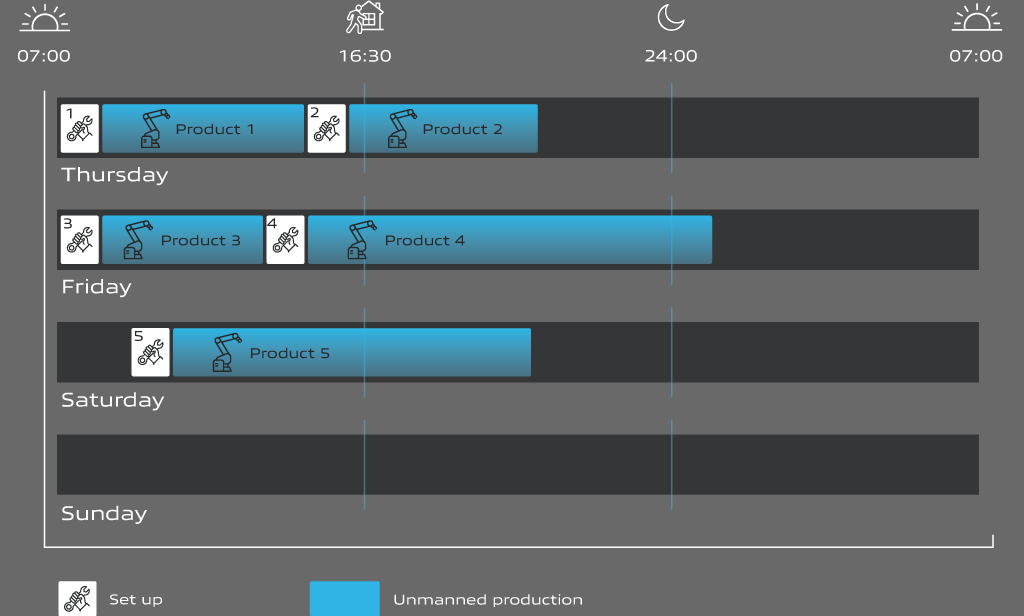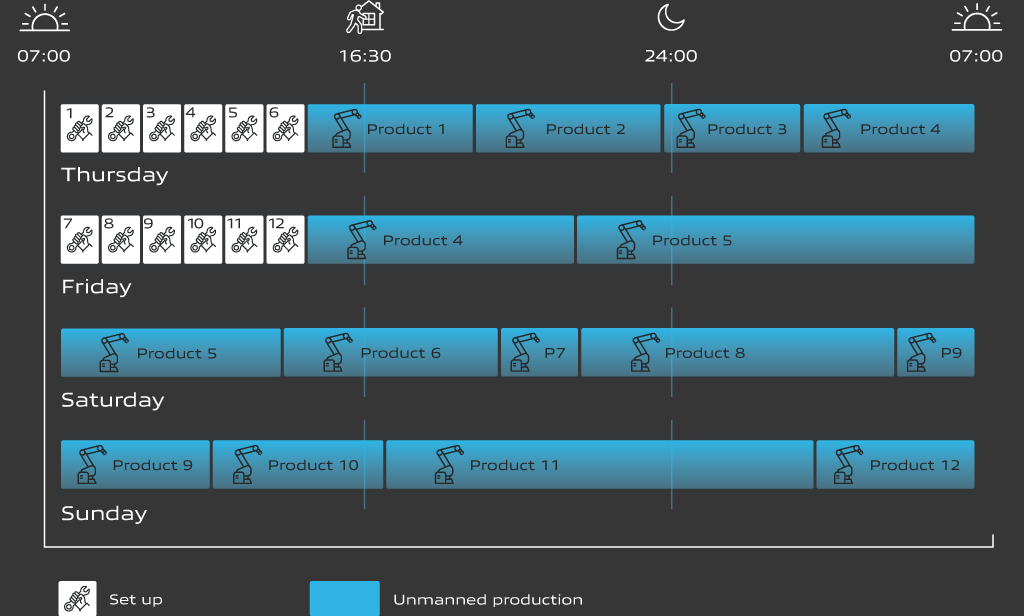How long does it take for your CNC machine to stop?
The time a CNC machine runs without the intervention of a craftsman is called autonomy. In other words, the time until your CNC machine shuts down.
Skilled workers are becoming increasingly scarce. To deploy them optimally, you prefer to have them work only on the day shift. To achieve this, you need an autonomy of 16 hours every day. This is because 16 hours is the time between two day shifts. To produce an entire weekend unmanned, you need an autonomy of 62 hours: The time between Friday afternoon 5pm and Monday morning 7am.
Without CNC automation, autonomy is equal to the cycle time of one product. The machine stops, once one NC programme has been run. With CNC automation, autonomy is equal to the series size. In fact, the CNC machine then only stops when the entire series is finished, right?





